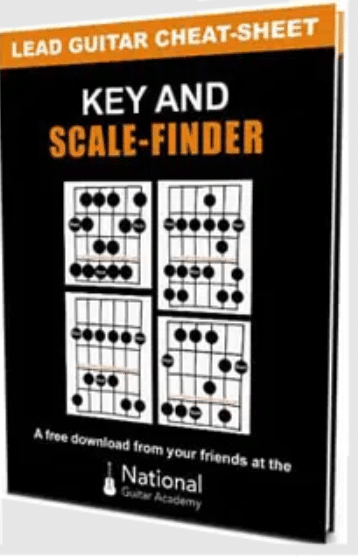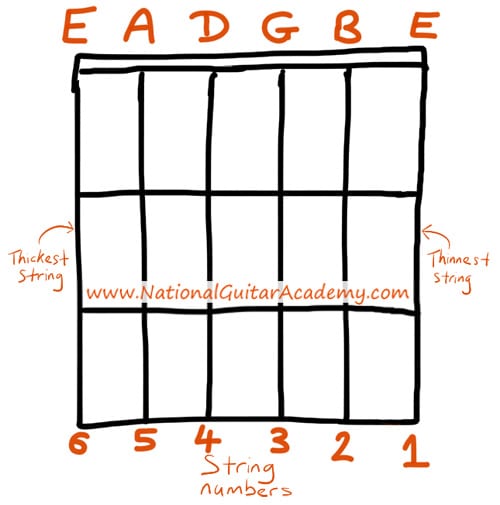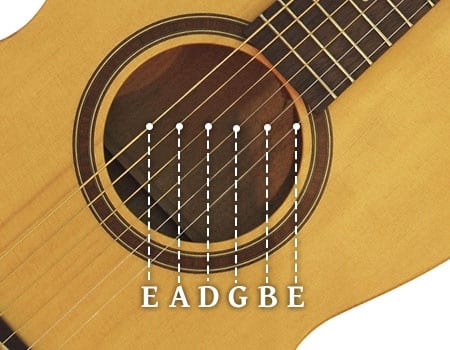Guitar notes are the building blocks we use to play all chords, riffs & solos. Having an understanding of guitar notes is essential knowledge for guitarists. 🎸
In this free guitar lesson you will learn:
- The notes of the guitar strings and fretboard.
- The difference between guitar notes and guitar chords.
- The notes of the musical alphabet.
- The difference between ‘sharps‘ and ‘flats‘.
- 3 useful tips to help you navigate the fretboard fast
Let’s dive straight in!
Over 100,000 guitar-learners get our world-class guitar tips & tutorials sent straight to their inbox:
Click here to join them
Get our best guitar tips & videos
Guitar String Notes (Standard Tuning)
There are six strings on a guitar. Each string has a name AND a number.
- The thickest string is called the 6th string. In standard guitar tuning, this is tuned to E. We often refer to this as the ‘low E string‘. This is the deepest/lowest guitar note you can play.
- The 5th string is tuned to A, so it’s usually referred to as the A string.
- The 4th string is tuned to D, so it’s usually referred to as the D string.
- The 3rd string is tuned to G, so it’s usually referred to as the G string.
- The 2nd string is tuned to B, so it’s usually referred to as the B string.
- The 1st string is tuned to E. This is the thinnest of all the strings. We often refer to this as the ‘high E string’.
How to remember the guitar string notes
The easiest way to remember the guitar string notes is to use a mnemonic:
- Elephants
- And
- Donkeys
- Grow
- Big
- Ears
Or my personal favourite…
- Eddie
- Ate
- Dynamite
- Good
- Bye
- Eddie
Kaboom!
Try and make a mnemonic yourself. (The sillier it is the better; that will make it more memorable.)
So one last time, here are the ‘standard tuning’ guitar notes (shown here overlaid on an acoustic guitar):
QUICK TIP
These notes are exactly the same on acoustic, electric, classical and semi-acoustic guitars.
Learn 12 EASY beginner chords with our popular guide
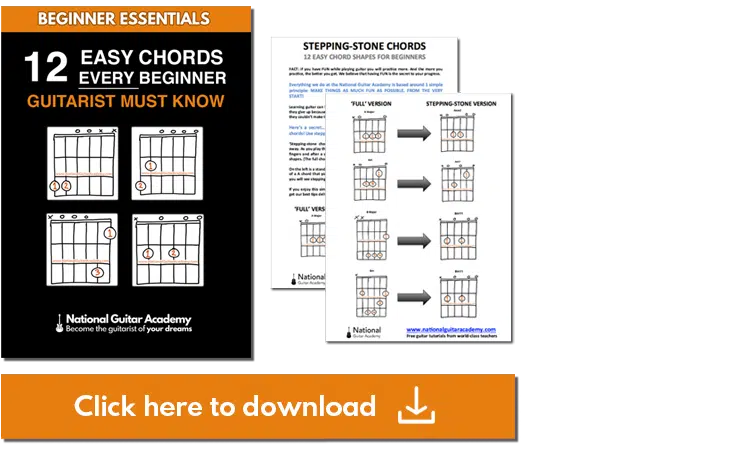
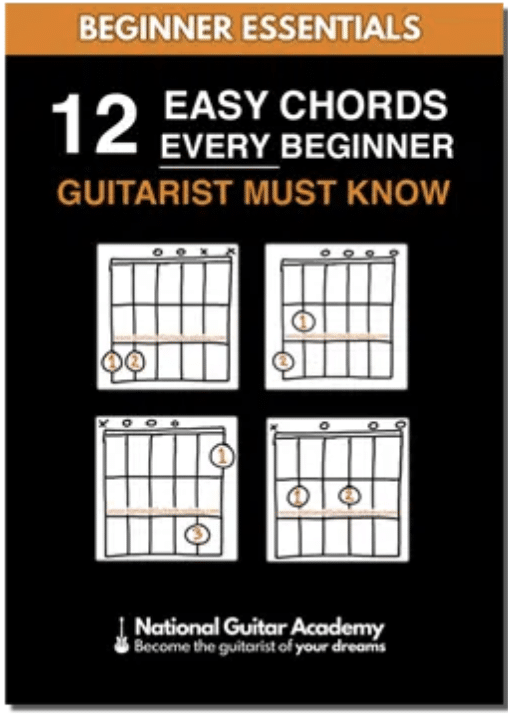
Where should we send it?
✅ Stop struggling. Start making music.
✅ Learn beginner-friendly versions of every chord.
This is our most popular guide and it will improve your chord ability quickly! 😎
Get your own personalised guitar-learning plan 🎸
Get a custom guitar-learning plan here: Click here for GuitarMetrics™
World-Class Guitar Courses 🌎
Learn from the world's best guitar educators: Click here for our guitar courses
Are there other guitar tunings?
Yes, there’s quite a few, but ‘standard tuning’ is the way most guitars are tuned.
While there are other ways to a tune a guitar that change the guitar notes, it’s best to avoid alternate tunings while you’re a beginner.
QUICK TIP
Stick with standard tuning for at least the first 6 months of your guitar journey.
If you switch to an exotic alternate guitar tuning, the chord shapes all change. That’s not much fun for a beginner. Let’s keep things nice and simple! 🙂
What’s the difference between guitar notes and guitar chords?
It’s pretty easy:
- Notes are the smallest unit of musical language.
- We group notes together to form chords.
Some of our students find this analogy helpful:
- Notes are like letters.
- Chords are like words.
To form a chord, we need to group some notes together.
Let’s look at some examples:

